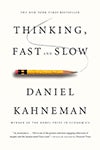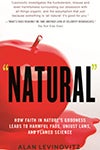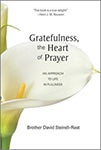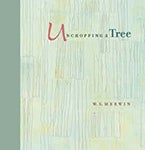
5 books that could improve your life in the new year
You could start the New Year by swearing off alcohol, tying on running shoes and vowing to eat more vegetables. Or, you could begin by picking up a book.
Scholars from across the USC Dornsife College of Letters, Arts and Sciences provide five reading recommendations that could help you “upgrade” your brain, rethink the natural world and become a bit more grateful for what you already have — no running shoes required.
Kamy Akhavan, executive director of the USC Dornsife Center for the Political Future. Akhavan manages all center operations and teaches classes on people skills and launching nonprofits for USC Dornsife.
Thinking Fast and Slow (Macmillan, 2011) by Daniel Kahneman
“Escaping the confirmation bias and motivated reasoning that traps us inside our own mental hamster wheels is a real challenge. There’s help. Nobel prize winner Daniel Kahneman’s book meticulously explores unconscious cognitive bias and concludes: Your brain wants to think fast, but you should try to think slow.
“Here’s an example of how that book helped me. I used to own an iPhone 5. Soon that phone was limping behind its more advanced counterparts, so I got an upgrade. Upgrades are a constant part of owning a phone. Thanks to Kahneman, I now think about opinions in the same way.
“Upgrading my views on issues is a constant part of my growing as a person. Even when my views are indeed half baked, I can slow my thinking, ask tough questions, and relish in the growth from learning vs. fearing the shame of being wrong.”
Jennifer Bernstein, lecturer of spatial sciences. Bernstein researches American environmentalism, environmental history, online teaching and learning, and California geography.
Natural: How Faith in Nature’s Goodness Leads to Harmful Fads, Unjust Laws, and Flawed Science (Beacon Press, 2020) by Alan Levinovitz
“The concept of “the natural” serves as a beacon to many of us. In theory, what is natural must be inherently good, pure and right. But using the natural as a mental shortcut has a darker side. “What about the health implications when medicine that has gone through multiple clinical trials and is eschewed in favor of untested “natural” solutions? What about women who have turned to in vitro fertilization when “natural approaches” haven’t worked?
“In this engaging and readable book, Levinovitz takes to case the idea that “natural” is inherently superior. At the end, the reader comes away with a more nuanced understanding of how to abandon the romanticization of the natural while not letting go of nature, and how to embrace the messiness of our hybrid world by prioritizing what is not necessarily natural, but rather morally right.”
Fr. Dorian Llywelyn, president of the Institute for Advanced Catholic Studies. Llywelyn is the author of two books and has published articles in multiple academic journals. His academic interests include nationalism and religion, popular religiosity and Mariology, the theological study of the Virgin Mary.
Gratefulness: The Heart of Prayer (Paulist Press, 1984) by David Steindl-Rast
“Many years ago, I bought Brother David Steindl-Rast’s Gratefulness, but it lay unread on my bookshelf for a couple of years. I started reading it in the midst of the intensity of grad school — although admittedly at first with a certain amount of skepticism. Since my purchase, ‘gratitude’ had become a buzzword, generating successful commercial enterprises on TV and in the press.
“Gratefulness in fact helped me tremendously at that point, and it remains one of the books I have greatest affection for. Brother David has the gift of expressing more things with fewer words. He writes profoundly and simply (though never simplistically) and gets directly to what really matters and why, in life as well as in prayer.
“As a Benedictine monk, he points out that when gratitude turns into prayer, it includes giving thanks to the giver as well as for the gift.”
Maya Maskarinec, assistant professor of history. Maskarinec is a historian of late antique and early medieval Europe and the Mediterranean, with an emphasis on the city of Rome.
Unchopping a Tree (Trinity University Press, 2014) by W. S. Merwin, illustrated by Liz Ward
“W. S. Merwin’s prose poem steps us through the arduous, and impossible, task of reconstructing a tree. “With spider’s webs you must simply do the best you can,” he advises. It is a short book with beautiful illustrations that makes us pause and reminds us to dream.
“With irresistible detail, Merwin takes us through the imaginary task, its difficulties and its possibilities. Reconstructing a tree after its destruction may not turn out to be possible, nor the past after the ravages that time has wrought, but if that is the only way to open us, it may well be worth the effort anyway.”
Najuma Smith-Pollard, assistant director of community and public engagement at the USC Dornsife Center for Religion Civic Culture. Smith-Pollard is a pastor, motivational speaker, author, life coach, radio personality and community activist.
The Body is Not an Apology: The Power of Radical Self-Love (Berrett Koehler Publishers, 2021) by Sonya Renee Taylor
“To fully understand the outcry of millions of people who fight against anti-Blackness, one must take time to understand how marginalized people have been marred by the complex views of bodies and body differences.
“Sonya Renee Taylor breaks down the need for radical self-love to combat issues of racism, anti-Blackness, anti-LGBTQI violence and so much more. You will walk away with a renewed sense of the need to radically love yourself and to better love others.”